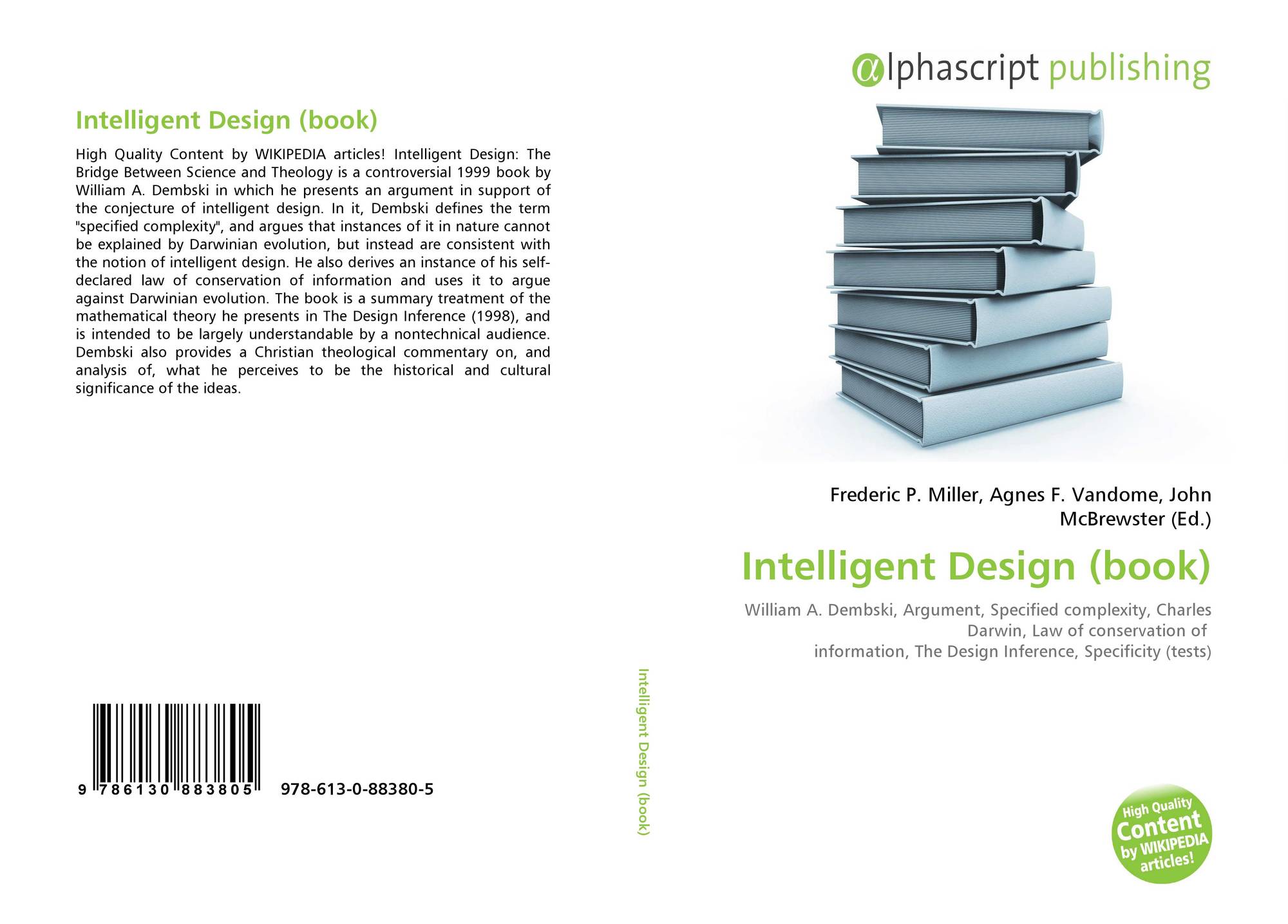Table Of Content

The scientific community claims that intelligent design is not scientific at all and is in fact a metaphysical theory that should be taught in philosophy class, not science class. Intelligent design proponents have also occasionally appealed to broader teleological arguments outside of biology, most notably an argument based on the fine-tuning of universal constants that make matter and life possible and that are argued not to be solely attributable to chance. These include the values of fundamental physical constants, the relative strength of nuclear forces, electromagnetism, and gravity between fundamental particles, as well as the ratios of masses of such particles. Thus, contemporary design advocates employ the standard uniformitarian method of reasoning used in all historical sciences. That contemporary arguments for design necessarily include critical evaluations of the causal adequacy of competing hypotheses is entirely appropriate.
Defending Intelligent Design
Beyond that, advances in our understanding of planetary and cosmic evolution have ruled out the possibility that biological life has always existed, either on earth or in the cosmos. At some point in the remote past, the conditions on earth and in the larger cosmos were simply incompatible with life. The big-bang theory alone implies that the cosmos itself is finite. Thus, scientifically informed people generally don’t argue that biological life always existed or even that it always existed on earth.

But Is It Science?
Biological science responded overwhelmingly to Darwin's evidence and quickly adopted evolution as the prevailing explanation of the development of the universe and life. And by 1940, almost all the biologists in the world believed that natural selection was driving force behind evolution. Unlike creationism, ID does not state that God is the intelligent designer.
Frequently Asked Questions About "Intelligent Design"
Contrary to what many might suppose, ID is much broader than the debate over Darwinian evolution. That’s because much of the scientific evidence for intelligent design comes from areas that Darwin’s theory doesn’t even address. In fact, much evidence for intelligent design comes from physics and cosmology. Advocates of the theory generally do not identify who they think the designer was.
The Darwinists may have the federal district judges, or some of them, on their side. But the people are skeptical of what they hear from authority figures, including judges, anyway. I think the goal in the future is to change the intellectual face of the culture so that it isn't the way it was when I first went to college, when we were all taught that to be intelligent implies that you're agnostic.
How would you go about testing for the existence of a designer? What is the research program?
What We Mean by Intelligent Design (And What We Don't) - Catholic Exchange
What We Mean by Intelligent Design (And What We Don't).
Posted: Thu, 11 May 2023 07:00:00 GMT [source]
Among the most prominent of these skeptical scientists were several from the Massachusetts Institute of Technology. Intelligent design begins with observations about the types of information that we can observe produced by intelligent agents in the real world. ID is not “creationism in a cheap tuxedo,” a provocative description attributed to Kansas University paleontologist Leonard Krishtalka. It clearly lacks some distinguishing features of creationism and the specific theological and biblical concerns that drive it. For example, ID takes no stance on “death before the fall,” an issue related to the theological problem of evil (theodicy) that is a crucial factor behind the presence of the word “young” in YEC creationism (for more on this, see my comments in an earlier column).
Peer-Reviewed & Peer-Edited Scientific Publications Supporting the Theory of Intelligent Design
Because the central mechanism of Intelligent Design is untestable, evidence relevant to the idea is lacking. However, some ID proponents have made testable claims that deal more with discrediting evolution than with the mechanism of Intelligent Design. These claims (e.g., that the components of bacterial flagella cannot function independently of one another) have been tested and refuted by the evidence.
The Origin of the Universe
The Catholic Case for Intelligent Design (Guest: Jay Richards) - Crisis Magazine
The Catholic Case for Intelligent Design (Guest: Jay Richards).
Posted: Wed, 14 Jun 2023 01:39:56 GMT [source]
Material is adapted from the textbook Discovering Intelligent Design, which is an excellent resource for introducing the evidence for ID, along with Stephen Meyer’s books Signature in the Cell and Darwin’s Doubt. Judd is a senior executive and producer with an extensive background in content creation across platforms, overseeing complex operations for high-visibility companies. He recently served as Head of Production and Development for The Hideaway Entertainment.
It's a statement of personal belief, a statement of philosophy, not a statement of science. A God-of-the-gaps argument is the theological version of an argument from ignorance. Once an essential constituent of an organism exhibits specified complexity, any design attributable to that constituent carries over to the organism as a whole.
The question is whether life originated from a purely undirected material process or whether a mind also played a role. Between these two options uniform experience affirms only the latter as an adequate cause for information-rich systems capable of processing and copying information. Since we know that organisms capable of reproduction constitute information-rich systems, a Humean appeal to uniform experience actually suggests intelligent design, not undirected processes, as the explanation for the origin of the first life. How do we realize that something has been put together intentionally by an intelligent agent?
Eyes and pocket watches both depend upon the functional integration of many separate and specifically configured parts. Nevertheless, he argued, biological organisms also differ from human artifacts – they reproduce themselves, for example – and the advocates of the design argument fail to take these dissimilarities into account. Since experience teaches that organisms always come from other organisms, Hume argued that analogical argument really ought to suggest that organisms ultimately come from some primeval organism (perhaps a giant spider or vegetable), not a transcendent mind or spirit. Proponents of neo-Darwinian evolution contend that the information in life arose via blind, mechanistic processes that show no scientific evidence of guidance by intelligent design. ID proponents contend that the information in life does not appear to have an unguided origin, but arose via purposeful, intelligently guided processes.
The important thing about specifications is that they be objectively given and not arbitrarily imposed on events after the fact. For instance, if an archer fires arrows at a wall and then paints bull’s-eyes around them, the archer imposes a pattern after the fact. On the other hand, if the targets are set up in advance (“specified”), and then the archer hits them accurately, one legitimately concludes that it was by design. After years of receiving apparently meaningless, random signals, the Contact researchers discovered a pattern of beats and pauses that corresponded to the sequence of all the prime numbers between two and one-hundred and one. (Prime numbers are divisible only by themselves and by one.) That startled the astronomers, and they immediately inferred an intelligent cause.

No comments:
Post a Comment